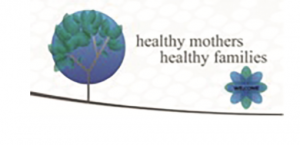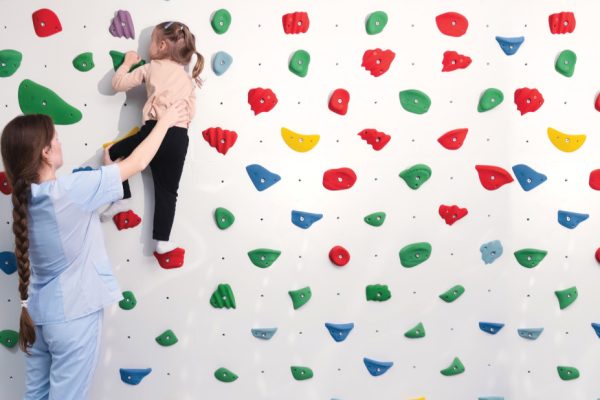
How to achieve better health and wellbeing: empowering mothers of children with a disability
By Associate Professor Helen Bourke-Taylor, Monash University
As an occupational therapist working with babies, children and young people with disabilities for many years, I often asked myself…
How are mothers feeling?
How do mothers manage everything asked of them?
Do mothers think about sleep, healthy food or exercise?
Do mothers find supportive people to laugh with or enjoy time out?
Over the next two pages I’ll talk about some of my research into mothers of children with a disability – around 1000 amazing mothers have contributed to various research projects with many expressing a wish for better health. I’ll also share some of the wisdom from marvellous mothers that I have met who made changes to achieve a healthier lifestyle. Just so you know, all quotes are from real mothers and collected in ethically approved research projects.
When mothers take care of themselves, the culture of self-care and health improves for everyone in the family. One mum, Gretal, explained that healthy changes are about:
“…setting little achievable goals… take little steps, not the whole thing at once, break it down a little bit. If I look at my daughter’s education, that’s exactly what they did… they celebrate all the little things…the little things are successes as well.”
MOTHERS: MENTAL HEALTH, WELLBEING AND HEALTH
Mothers of children with a disability are known to experience much higher rates of anxiety, depression and some chronic medical conditions compared to other mothers. You are not alone if you feel that your mental or physical health is not as good as it could be.
Research from at least 20 countries indicates that mothers of children with a disability experience stress at much higher levels over longer periods. The work of Elizabeth Blackburn, the first Australian woman to earn a Nobel prize, provides an example of the impact this can have. Professor Blackburn identified the parts of our cells responsible for aging and made the alarming discovery that mothers of children with a disability with high, unrelenting stress, actually had accelerated cellular aging. This means that they were aging faster than other similar aged women. However, very recent research indicates that reducing how stressed you feel and exercising regularly, can reverse cellular aging. Arming yourself with this knowledge means that you are in a better position to improve your own situation. Knowledge is power.
WHAT MOTHERS SAY ABOUT STRESS
In research, mothers have identified many issues that cause them high stress. Some of the issues relate to external family factors such as difficulty navigating the service system around their child/ children or a lack of support or professional services needed by the child or family. Other factors relate to a lack of time to attend to health, chronic sleep disruption, inability to participate in the paid workforce or a lack of supportive adults available to the mother.
REGARDLESS OF THE SOURCES OF STRESS, YOU MAY BE ASKING YOURSELF: HOW CAN I MAKE A CHANGE?
Research has identified that the single most important factor to improved health and wellbeing is the frequency that mothers participate in activities for themselves. When monitored over eight months, mothers participating in health promoting activities 2-3 times per week had a significant reduction in signs of stress, anxiety and depression. Specifically, the activities involved:
• self-care (planning what to eat, when to exercise, how healthy habits would fit in the week)
• physical activities alone or with others (walking, running, gardening, dancing, etc)
• spiritually fulfilling activities that may be religious or simply reflective time in nature
• social activities with supportive others
• quiet activities, that may be alone or with others (reading, listening to music, baking, painting, etc)
Often mothers underestimate the importance of spending time with supportive people. Supportive people do more than make us feel good, they support our mental health and wellbeing.
Mary, a mother of a child with a disability stated:
“To me the most important light bulb moment was when I realised the importance of social support and friendships to my health. I don’t think that I had really made that link before. I realised that I need to prioritise time with friends a little bit more”
Empowerment around the disability or health condition affecting a child/children is also associated with better mental health and wellbeing. Typically, mothers have worked through rapid knowledge acquisition in relation to their child’s condition, understanding the roles and services offered by professionals and therapy or medical interventions that may assist their child. Many mothers have immersed themselves in learning ways to help their child, often becoming experts and having impressive knowledge and skills that they readily share with other parents.
Empowerment is a cornerstone to managing daily family life and getting out there and participating in your local neighbourhood, school and community.
Geraldine was in awe of the mothers she knew who also had a child with a disability:
“Women are such an important part of families in the community. I think we’re unsung heroes…”
MOTHERS: FINDING BALANCE AND SEEKING HELP
All mothers seek to achieve a good balance between caring responsibilities, attention to health, fun, work and other life responsibilities. Mothers know when they are in balance. Balance can be achieved through prioritising your own needs. Wake up each day and plan—
• What will I do for myself today?
• What food will nourish me today?
• Who will provide good support and who’s company will I enjoy and share friendship with today?
• What exercise can I manage today?
• When can I take a rest—however short, today?
At the end of the day, take some time to celebrate what you achieved for the day generally, and specifically in regard to your own self-care.
Sometimes the suggestions above are not enough to reduce anxiety, stress or depressive symptoms.
Counselling and professional support may help you to manage your mental health and wellbeing. Your general practitioner can provide you with access to Medicare funded mental health support. Another option is the Carer Gateway, which provides a way to find local counselling services that may be helpful. See https://www.carergateway.gov.au/.
Sometimes mothers think that it is a weakness to need professional help or express that they feel sad or anxious. However, it is a strength to acknowledge how you feel and reach out to find support for yourself. We were never meant to travel our life journey alone.
As Corrine explained “12 months ago I was pushing everyone away. I just thought, they don’t understand… But it’s up to me to change that. It’s not up to them, because only I can inform them.”
Seeking help and support from those around you can bring stronger connections and help you achieve a better balance in life. Managing and staying strong means finding and using all of the supports that you have available to you.


Healthy Mother Healthy Families (HMHF) is a health and empowerment program specifically designed for mothers of a child
with a disability who identify as experiencing high stress and the need to attend to their own health and wellbeing.
The day workshop provides mothers with information, research findings and the shared wisdom of other mothers, to better
support mothers to meet their responsibilities whilst also caring for themselves.
For more info email [email protected], Associate Professor at Monash University. Note: With thanks to Holly Johnson, occupational therapist, for creative graphics








